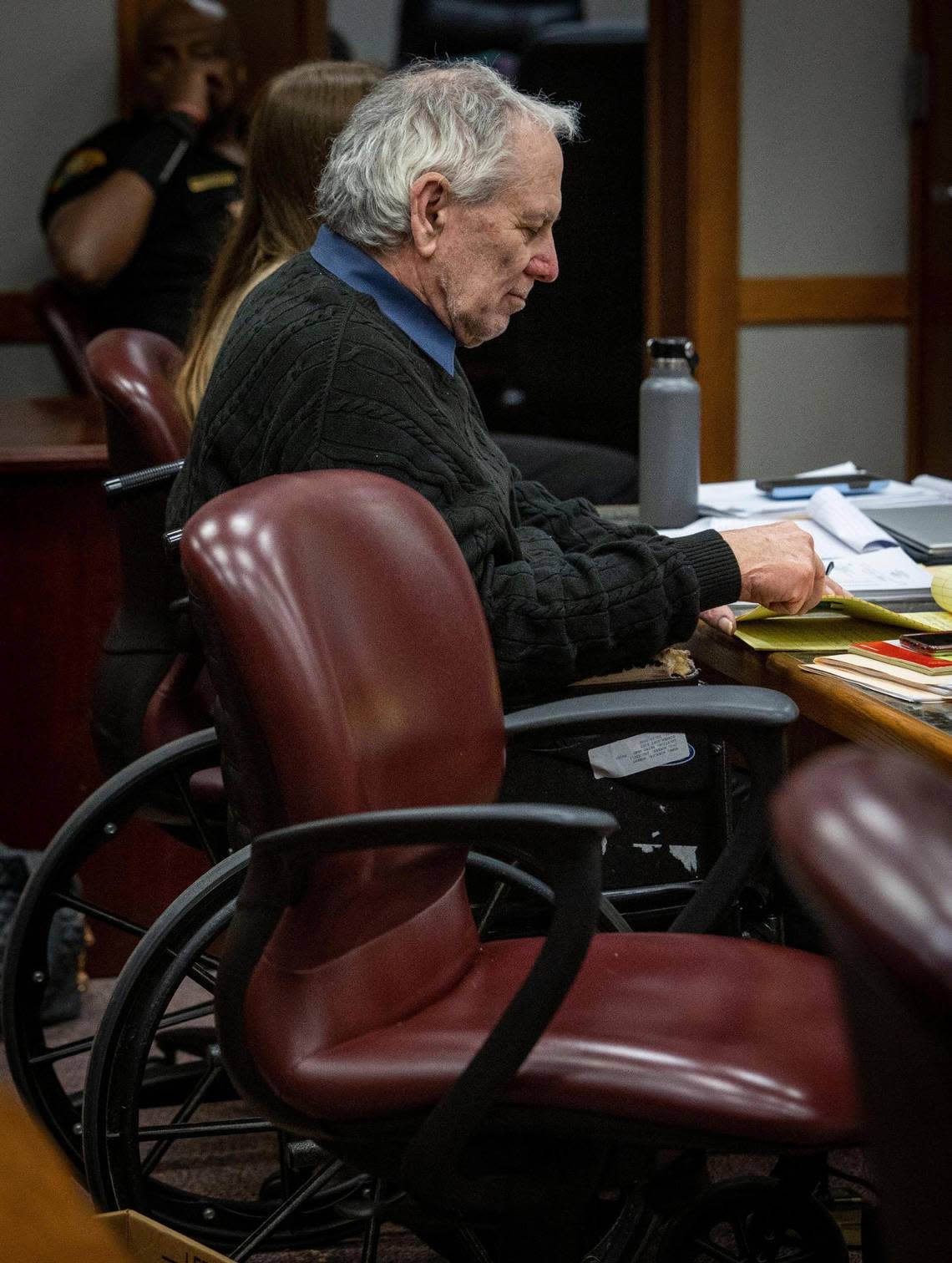Jury finally hears notorious Florida ‘Pillowcase Rapist’ case. DNA from 1983 is key
The man in a black sweater rolled into the Miami-Dade criminal courtroom Thursday in a wheelchair. He looked unassuming, like any other graying man you might see on the street.
But Robert Eugene Koehler, 63, stands accused of being the “Pillowcase Rapist” — one of the most notorious serial rapists in Florida history, linked by police to a horrific string of sexual assaults across South Florida in the early 1980s. The masked assailant slipped into apartments — his face typically shielded by a pillowcase or shirt — and attacked dozens of women at knifepoint.
READ MORE: How the Pillowcase Rapist became one of the most wanted criminals in South Florida
The opening day trial was decades in the making. Police had never made any arrests or even identified possible suspects until 2020 when the arrest of a relative and a DNA profile led them to raid Koehler’s home in Palm Bay, where they also found what was described as a hidden “dungeon.“ Prosecutors began laying out their case in opening statements, with that DNA evidence at the center.
While technology has advanced in the last four decades, the genetic material left at the crime scene proves Koehler was the man behind the rape of a 25-year-old woman in December 1983, prosecutor Laura Adams said. It’s just one of dozens of cases police link to Koehler. Broward County prosecutors also have charged him in six sexual assault cases.
The defense offered what seemed a wild conspiracy tale for Koehler’s arrest, claiming that decades ago police had somehow set him up to take the fall.
In the ‘80s, public defender Vivian Pitchik said, Miami was a dangerous, drug-fueled place where police corruption was rampant. She claimed Koehler himself was kidnapped, “tortured, intimidated and drugged” by rogue officers seeking physical evidence — semen — that provided DNA now linking him to the cases. Pitchik did not explain why it had taken decades for police to track him down and charge him.
Koehler, she said, will take the stand later in the trial., cautioning that what he says “might sound strange.”

A string of prosecution witnesses detailed the crime: The victim in the 1983 case recounted the horror she endured when a masked man entered her apartment and raped her. A DNA expert and the doctor who performed her sexual assault kit also broke down the evidence left behind — and how it was collected and matched.
Miami-Dade Det. Humberto Tavares outlined police’s strategy to obtain Koehler’s DNA in 2020. Investigators watched his Palm Bay home, waiting for him to throw out a cigarette butt or a cup. Then, came their moment: Koehler discarded a wipe he used to clean his Walmart shopping cart, Tavares said. An undercover officer near the trash can picked it up.
They got an order from a judge for a DNA sample, Tavares said. It was a match.
Ex-girlfriend Terri Lee Fonville also testified that Koehler was outraged when his daughter mentioned taking an ancestry DNA test. He raised his voice, swore and vowed to disown her.
“He was very adamant about his daughter not having a DNA test,” Fonville said.
The state also tried to unravel the defense’s kidnapping story by introducing a life-long friend of Koehler’s. On the stand, Edward Fernando Leyva said Koehler never said anything about being kidnapped by police and being “forced to ejaculate” in 1983.
After his 2020 arrest, Koehler called Leyva dozens of times. He said Koehler asked him to send money and petition for his innocence.
“He told me he was being framed,” Leyva told Adams. “That he ... didn’t do what he’s charged with and there was some greater conspiracy going on that he couldn’t actually explain.”
A decades-long search
The hunt for the Pillowcase Rapist was the subject of a series of stories that won legendary Miami Herald crime reporter Edna Buchanan the Pulitzer Prize.
A Miami-Dade police task force chased tips, conducted stakeouts, analyzed forensic evidence and even commissioned a lifelike sculpture from the one victim who got a glimpse of his face. But the task force disbanded in 1987, and the case went cold.
READ MORE: The elusive Pillowcase Rapist: When South Florida women were stalked by a predator
That was until a DNA hit led police to Koehler, a registered sex offender from Palm Bay in 2020. At the time of his arrest, police found a blade and possible jewelry stolen from victims in what they described as a “dungeon.”
The DNA, the State Attorney’s Office said, was matched to at least 25 rapes; though he’s only charged with one case, a strategy that may enable a quicker conviction. At his first court appearance in 2021, Koehler also claimed he was “set up” by police.
